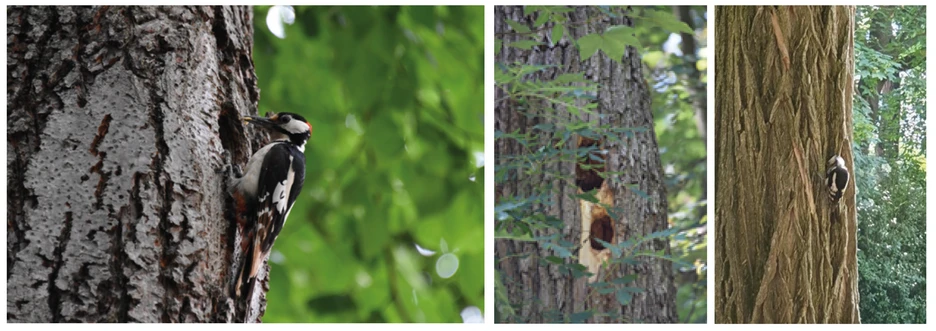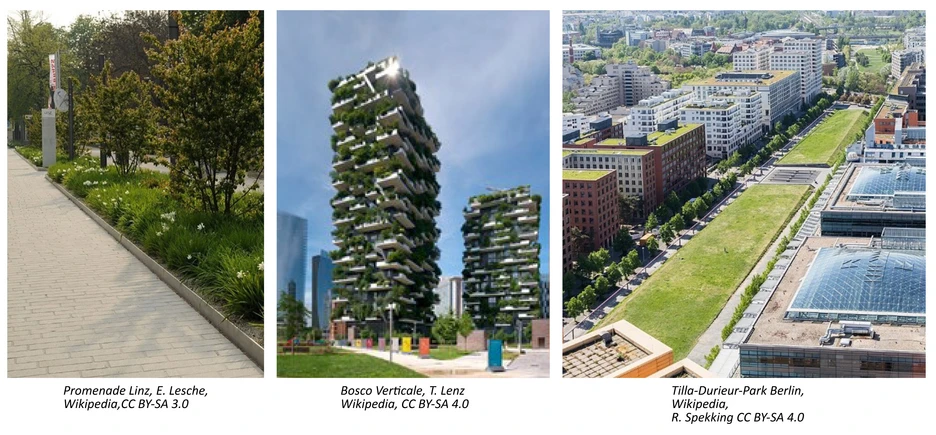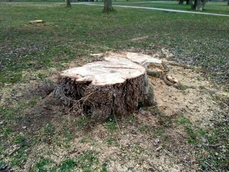Themen für Bachelor und Masterarbeiten
Auf der Seite findet sich eine Liste aktueller Themen für Bachelor und/oder Masterarbeiten am Lehrstuhl.
Interessenten sollten wie folgt vorgehen:
- zu jedem Thema ist ein direkter Betreuer genannt. Wenn Ihnen die kurze Beschreibung zusagt, dann kontaktieren Sie bitte diesen Betreuer, der Ihnen weitere Informationen zusendet.
- Sollte Ihnen dies Thema zusagen, dann sollten Sie sich mit dem Betreuer zusammensetzen, um Fragen zu besprechen.
- Wenn Sie sich entschlossen haben, dass das Thema für eine Bachelor oder Masterarbeit ernsthaft in Frage kommt, dann vereinbaren Sie bitte einen gemeinsamen Termin mit dem direkten Betreuer und Prof. Weisser, um die geplante Arbeit genauer zu besprechen.
- Bevor die Arbeit beginnen kann, muss ein 1-2seitiges Konzeptpapier von Ihnen entwickelt werden, in dem die Ausgangsfragen, die geplanten Arbeiten und Auswertungen dargelegt werden. Wir helfen gerne dabei. Das Konzeptpapier dient als Grundlage für eine Betreuungsvereinbarung.
- Ihre Arbeit wird von dem direkten Betreuer gemeinsam mit W. Weisser betreut, Sie werden also zwei Betreuer haben.
- Bei Fragen oder Ideen für Arbeiten, die sich nicht auf der Liste finden, sprechen Sie bitte die W. Weisser oder die Mitarbeiter des Lehrstuhls direkt an.
Buntspechte kommen ursprünglich im Wald vor, können aber auch in der Stadt leben. Buntspechte bleiben auch im Winter in der Stadt, übernachten dort aber in selbst hergestellten geschützten Höhlen im Baum. Vorherige Untersuchungen haben gezeigt, dass Buntspechte auf vielen Stadtplätzen in München gesichtet werden, wenn diese ausreichend viele Bäume haben. Allerdings legen Buntspechte ihre Höhlen nur in Bäumen mit mehr als 20cm Brusthöhendurchmesser an und solche Bäume sind selten, insbesondere auf Stadtplätzen, auf denen der Buntspecht nur ab und zu gesichtet werden. Das Vorkommen hängt auf solchen Plätzen wahrscheinlich vom Vorkommen größerer Bäume in der Nähe der Plätze ab.
Ziel der BSc/MSc-Arbeit ist es, anhand der Verteilung geeigneter Bäume und Baumhöhlen das Vorkommen von Buntspechten auf öffentlichen Plätzen in München zu erklären. Dabei kann auf Daten vorheriger Arbeiten zurückgegriffen werden. Die Arbeit umfasst die Beobachtung von Buntspechten, die Kartierung und Vermessung von Bäumen in der Stadt und die Auswertung der gewonnenen Daten. Die Masterarbeit wird auf Deutsch und Englisch betreut.
Zeitraum: Winter 2025-2026 (wenn die Bäume keine Blätter haben)
Bei Interesse bitte an Wolfgang Weisser (wolfgang.weisser[at]tum.de) wenden.

Landschaftsarchitekt*innen gestalten Freiflächen durch konkrete Entwürfe. Dabei sollen die mannigfaltigen Ansprüche des Menschen berücksichtigt werden. Viele dieser Ansprüche hängen direkt oder indirekt mit der Stadtnatur zusammen, die durch die Landschaftsarchitektur gestaltet wird. So sind Ökosystemleistungen wie die Regulation des Mikroklimas eines Freiraums durch Beschattung von der Wahl der Pflanzen, ihrer Anordnung und Menge abhängig. Auch Naturerfahrungen im Freiraum, wie das Erleben von Tieren, werden durch die Gestaltung entscheidend beeinflusst. Freiräume ökologisch zu gestalten ist jedoch aufgrund vieler Zwänge nicht einfach. Gleichzeitig werden oft ökologische Versprechungen gemacht, die möglicherweise nicht gehalten werden können.
Ziel der Arbeit ist es, die ökologische Funktionalität landschaftsarchitektonischer Gestaltung zu untersuchen. Dabei sollen Kriterien für ein ökologisches Funktionieren eines Designs entwickelt und dabei unterschiedlichste Funktionen berücksichtigt werden. Anhand aktueller Beispiele gestalteter Freiräume soll untersucht werden, welche Funktionen wie umgesetzt wurden. Aus der Analyse dieser Beispiele sollen dann Vorschläge erarbeitet werden, wie landschaftsarchitektonische Designs eine hohe ökologische Funktionalität erreichen können.
Bei Interesse bitte an Wolfgang Weisser (wolfgang.weisser[at]tum.de) wenden.


Abschätzung der Auswirkungen von Baumfällungen für den Verlust von Grüner Infrastruktur in Stadträumen
Stadtbäume sind wichtig für eine Reihe von Ökosystemleistungen in der Stadt und die Bedeutung eines Baumes wächst nimmt mit zunehmendem Alter aufgrund der größeren Baumkrone zu. Der genaue Zusammenhang zwischen der Größe eines Baumes und den durch den Baum bereitgestellten Ökosystemleistungen ist jedoch nicht bekannt. Experimente mit neu angepflanzten Bäumen sind schwierig, weil das Wachstum der Bäume sehr lange dauert. Eine Alternative sind Baumfällungen: wenn Ökosystemleistungen vor und nach einer Baumfällung gemessen werden, kann der (ehemalige) Beitrag des Baumes abgeschätzt werden.
In der Masterarbeit soll anhand von durchgeführten Baumfällungen in München und Ingolstadt eine erste Abschätzung des Beitrags von Bäumen unterschiedlicher Größen für Ökosystemleistungen gemacht werden.
Mit Hilfe der Auswertung von Luftbildern und Karten soll der Beitrag der gefällten Bäume zur grünen Infrastruktur bestimmt werden. Dazu soll die Differenz im normalisierter differenzierter Vegetationsindex (NDVI-Normalized Difference Vegetation Index) vor und nach der Fällung mit Hilfe von Vergleichsflächen bestimmt werden. Die Differenz im NDVI soll mit der Baumgröße in Zusammenhang gebracht werden, über Angaben der Stadt bzw. ebenfalls aus Remote Sensing Daten. Die Masterarbeit findet in Kooperation mit dem DLR Oberpfaffenhofen statt.
Voraussetzung: gute bis sehr gute Kenntnisse in GIS (ArcGis, QGis oder R) bzw. die Bereitschaft, sich bei guten Grundlagen vertieft in die Methodik einzuarbeiten.
Beginn der Arbeit: jederzeit ab November 2025.
Bei Interesse bitte an Prof. Stephan Pauleit (pauleit[at]tum.de) oder Wolfgang Weisser (wolfgang.weisser[at]tum.de) wenden.
Scientific Background & Project Context
Oak forests support exceptionally high arthropod diversity, yet our understanding of how forest density affects these communities remains limited. This thesis is embedded within the "Nelder Oak Forest" project, a unique long-term experiment funded by the AUDI Environmental Foundation. Since 2008, this research network maintains standardized oak density experiments using innovative Nelder wheel plots that simulate densities from 100,000 to 50 trees per hectare.
Tree density fundamentally alters competitive interactions, resource availability, and plant stress responses. These changes cascade through the ecosystem, potentially affecting arthropod community structure and herbivory patterns. The project provides an unprecedented platform to study these tree-arthropod interactions with 15+ years of baseline data on tree growth and environmental conditions.
Research Focus & Methodology
The specific research question and methodology will be developed collaboratively based on your interests and expertise. Potential approaches include:
- Community ecology: Arthropod diversity surveys using observations and standardized trapping methods
- Functional ecology: Quantifying herbivory rates and leaf damage patterns across density gradients
- Specialized interactions: Investigating gall-inducing insects, leaf miners, or other oak-specialist groups
- Laboratory analysis: Processing leaf samples and arthropod specimens using modern identification techniques
We welcome both broad community approaches and focused studies on particular arthropod groups. Multiple complementary thesis projects are possible, allowing students to collaborate while developing distinct research contributions.
What We Offer
Research Excellence: Intensive supervision by experts in forest ecology, arthropod biodiversity, and tree ecophysiology. Access to comprehensive long-term datasets and state-of-the-art laboratory facilities for arthropod identification and leaf analysis.
Professional Development: Opportunity to contribute to scientific publications, present at conferences, and network with international research partners. Potential field work opportunities at research sites across Europe, depending on project scope and logistics.
Collaborative Environment: Integration into an active research team with ongoing projects linking tree physiology to community ecology across environmental gradients.
Requirements & Expectations
Essential: Strong motivation for biodiversity research, solid foundation in ecological statistics, and willingness to develop R programming skills. Ability to work independently while collaborating effectively within a research team.
Desirable: Experience with arthropod identification, forest ecology field methods, or plant-insect interactions. Prior statistical analysis experience beneficial but not required.
Practical Information
Flexibility: Available immediately with adaptable timing for summer fieldwork, winter laboratory analysis, or spring campaigns. Multiple thesis topics possible within this research framework.
Supervision: Dr. Sebastian T. Meyer (lead supervisor) with Prof. Wolfgang Weisser, in collaboration with tree ecophysiology experts Dominik Ambs and Prof. Richard Peters. Supervision available in English or German.
Contact: Please reach out to Dr. Sebastian T. Meyer with motivation letter, CV, and transcripts to discuss specific research directions and timing.
Research contributing to sustainable forest management supporting both productivity and biodiversity conservation.

Urban areas are expanding rapidly, yet we still have limited knowledge about how city structures influence insect populations. Insects play vital roles in ecosystems, contributing to processes such as pollination, pest control, and soil health. Cities represent unique habitats characterized by fragmented green spaces, varying temperatures, and artificial surfaces, which can either benefit or harm different species.
By investigating how urban structures affect insect diversity and abundance, we can develop strategies to support biodiversity in urban environments. This research is not only scientifically significant but also has practical applications in conservation, urban planning, and sustainable city development. If you are interested in this, this thesis topic presents an opportunity to make a meaningful impact!
We are offering one to two master‘s theses for motivated students to explore how city structures affect arthropod populations in Munich. We will sample ants using pitfall and bait traps and use a variety of sampling methods for other arthropod groups (Insect cameras, trap nests, light traps).
Sampling will occur in various locations throughout Munich, including the city center and surrounding districts.
The master theses include the following work steps:
Literature review on your thesis topic
Fieldwork in Munich in summer
Statistical data analysis in R
Digitization of collected data
Writing
Requirements
Most important is that you are motivated and interested in the topic. You will be supervised by Zoé Hentschel, a PhD student at TUM and Prof. Wolfgang Weisser. We provide a vivid working environment with many Master’s and PhD students with whom you can interact and learn from/together with. We expect that you have some experience with data analysis in R. Prior experience with arthropod sampling is beneficial. The project results might contribute to a publication based on the outcome and the derived data. The theses start in May, at the latest in June 2025. The theses can be supervised in German or English.
If you are interested, please contact: Zoé Hentschel (zoe.hentschel[at]tum.de)
Auswirkungen von Lebensraumelementen und Substrattiefe auf die Pflanzen- und Insektenvielfalt auf extensiven Gründächern
Gründächer (Dachbegrünungen) bieten die Möglichkeit, Biodiversität zu fördern, zusätzlich zu anderen Funktionen wie ein Haus optisch zu verbessern, oder den Wärmeinseleffekt und Oberflächenwasserabfluss zu reduzieren. Gründächer können, zumindest theoretisch, als Refugium für Insekten und als potenzielle Futterquelle für Vögel und Fledermäuse dienen. Gründächer sind jedoch extremen klimatischen Bedingungen ausgesetzt, deren Auswirkungen durch ihre geringe Substrattiefe noch verstärkt werden. Wie genau die ökologische Funktion von Gründächern erhöht werden kann, ist gerade für Tiere noch recht unbekannt.
Im Rahmen des Projektes “Animal-Aided Design” wurde auf einem Gebäude in der Brantstraße in München-Laim das Dach begrünt und als Versuchsfläche entwickelt. In einem experimentellen Ansatz soll geprüft werden, ob geringe Veränderungen der Bodentiefe (Anhügelungen) oder das Hinzufügen von Steinhaufen, Totholz oder Refugien die Vielfalt von Tieren oder Pflanzen erhöhen kann.
Die Masterarbeiten konzentrieren sich entweder auf Pflanzen oder Tiere. Folgende Arbeitsschritte sind geplant:
Probenahme Pflanzen oder Tiere, insbesondere oberirdische Insekten und Bodentiere
Bestimmung der Pflanzen oder Tiere (zT. Sortieren nach Ordnung)
Statistische Auswertung der Daten, um zu prüfen, welche der Ansätze positive Effekte auf Pflanzen oder Tiere haben.
Bei erfolgreicher Arbeit können die Ergebnisse gemeinsam mit anderen Daten publiziert werden. Die Masterarbeit wird auf Deutsch und Englisch betreut.
Bei Interesse bitte an Wolfgang Weisser (wolfgang.weisser[at]tum.de) wenden.